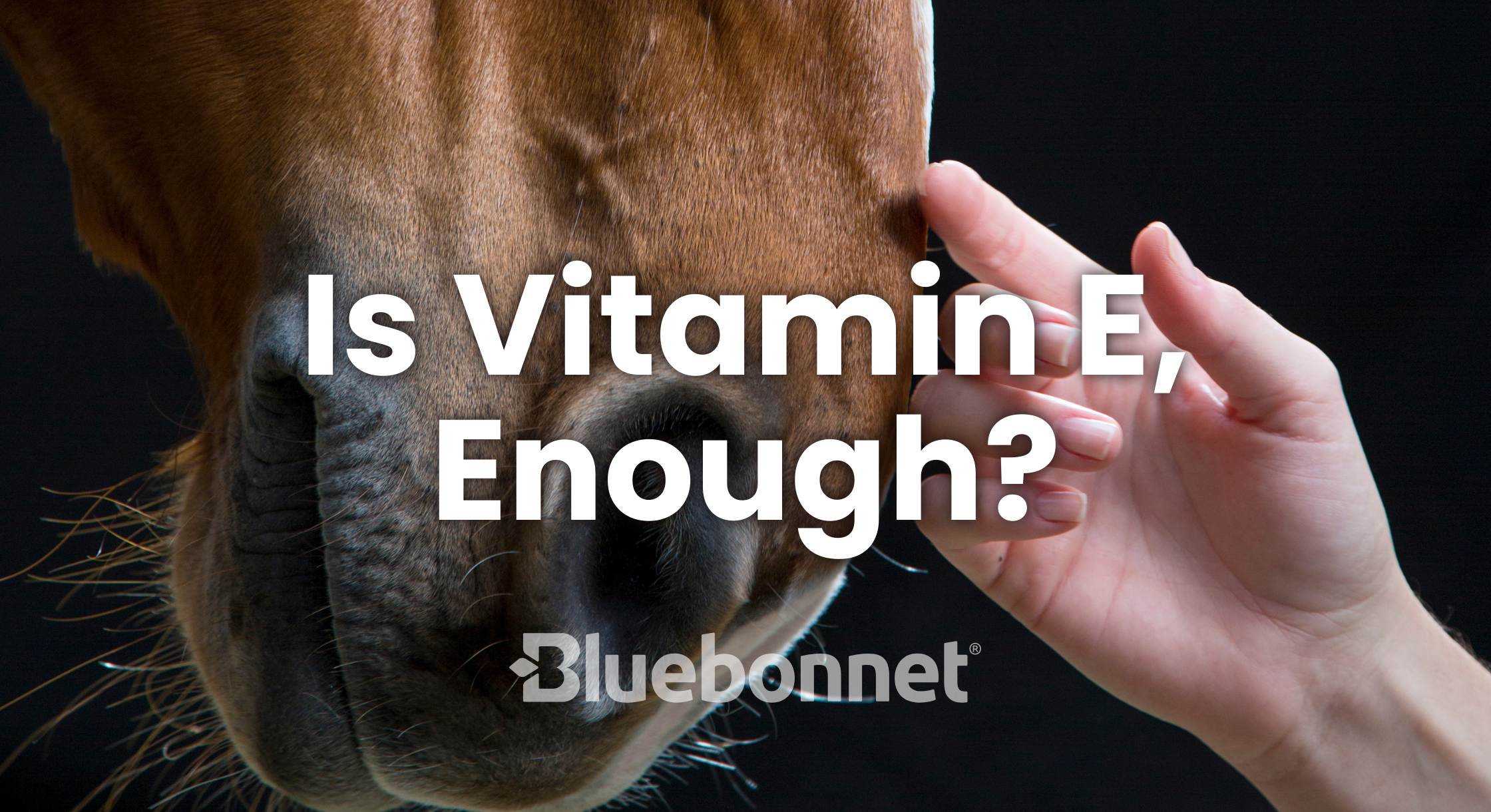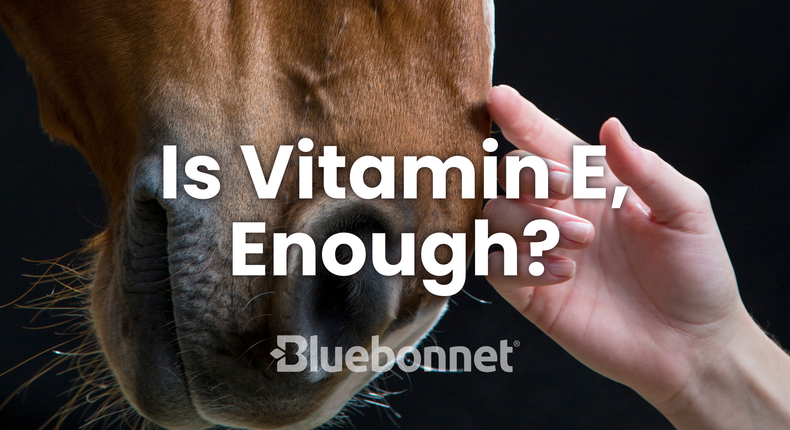
Many horses benefit from supplemental vitamin E in order to counter act stress and the negative consequences of EPM or muscle dysfunction. However, by supplementing vitamin E only without vitamin C you may be providing less than optimal protection for your horse.
How do they work together?
The synergistic effects of vitamin E and vitamin C have been recognized for quite some time (approximately 20 years), however, the exact mechanisms by which these two vitamins work together is still not completely understood. What we do know is that supplementing vitamin E and vitamin C in combination lowers the concentration of oxidative compounds in the body and significantly reduces the production of pro-inflammatory molecules produced by lipid metabolism in the body. A reduction in pro-inflammatory molecules is especially important for horses needing additional vitamin E because it makes the entire supplementation program much more effective, lowers the predisposition to insulin resistance and reduces the production of pro-oxidation molecules.
Does form matter?
The form of vitamin E is also important for effectiveness. The chemical name for vitamin E is tocopherol which exists in multiple forms. The most common form is dl-alpha tocopherol (synthetic) which is the form most vitamin E supplements contain. However, d-alpha-tocopherol (natural) is utilized by the body much more effectively compared to dl-alpha-tocopherol, therefore, horses needing additional vitamin E are much better off receiving d-alpha tocopherol. A third form of vitamin E is d-gamma-tocopherol which has proven to be even more effective in regard to supporting cellular immunity and anti-oxidative activity in the body.
What's in yours?
Bluebonnet's Immune E/C is the only vitamin E in combination with vitamin C product currently on the market formulated specifically for horses. Immune E/C contains d-alpha-tocopherol and d-gamma-tocopherol for maximum effectiveness.

